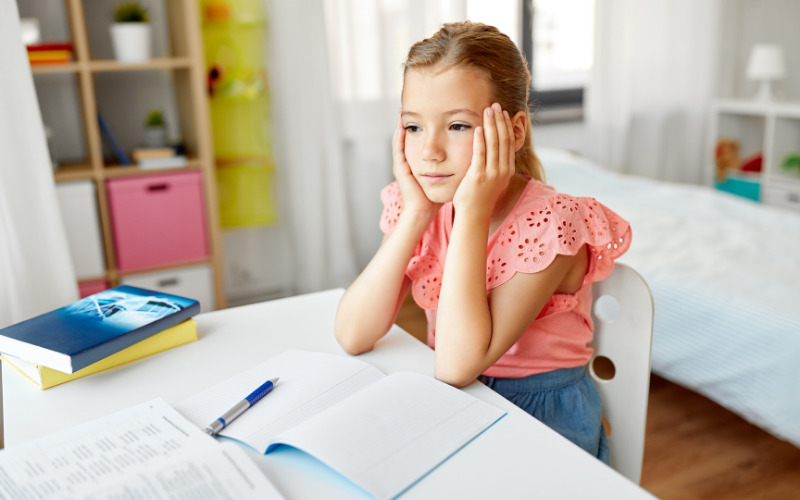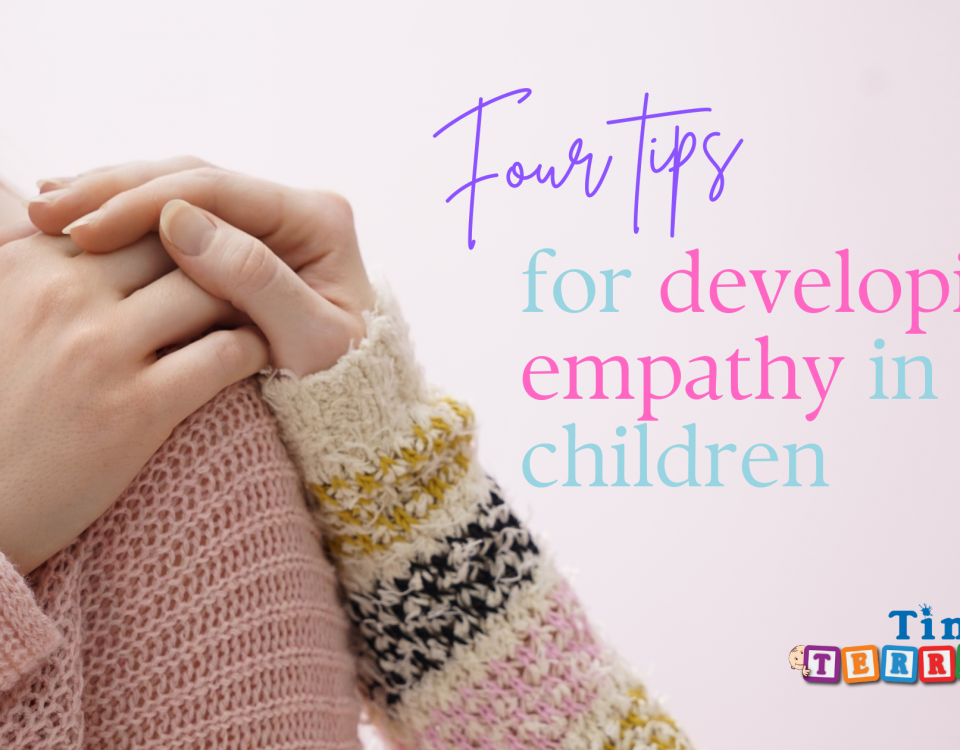
Tips to Maintain Healthy Family Relationships
September 17, 2021
Effective De-escalation Strategies for Diffusing Toddler Meltdowns
November 16, 2021Anxiety: A guide for parents and carers

Everyone experiences anxiety symptoms at some stage in their lives. People describe anxiety using terms such as stressed, uptight, nervous, worried, or frazzled. Although anxiety is unpleasant, it can be very useful in helping avoid dangerous situations and solve problems.
According to Beyond Blue, “14.4% of Australians aged 16 to 85 have experienced an anxiety disorder in the last 12 months. This is equivalent to 2.71 million people today.”
Anxiety can affect someone’s thinking, feeling, behaviour and physical well-being. Some symptoms of anxiety may include things such as:
- Your mind is racing or going blank
- Decreased concentration and memory
- Confusion
- Unrealistic or excessive fear and worry
- Irritability
- Anger
- Avoidance of situations
- Obsessive or compulsive behaviour
- Distress in social situations
- Sleep problems
Next time you notice symptoms of anxiety in your child, here is how as a parent or carer to help.

Slow down
The first step to conquering anxiety is slowing down. You can help by encouraging slow, deep breaths.
To make it more fun and exciting, practice this together. Slowly breathe in together. The breathing process should take three seconds. Hold the breath for three seconds, then breathe out for three seconds.
When they appear to have calmed, you can talk through the worry with the child.
Have worry time
The goal for worry time is not to stop worries, but to reduce the time spent on the anxious thoughts. The steps are a template for training your child to contain their worries within 15-20 minutes a day. Of course, it will take regular practice, but it is a very achievable goal.
Worry Time is a clever strategy that contains your child’s worries in time. When it is combined with a method to contain the worries in physical space like a Worry Box or a notebook, it is a very powerful anti-anxiety tool.
Encourage baby steps
Instead of avoiding anxious situations, you can encourage your child to take baby steps.
If your child fears water, take them to a pool, sit on the edge and let them watch other children swim.
Slowly but surely, your child will build confidence, and subsequently, may start playing with the water before building the courage to launch in for a swim.

Positive Thinking
It all begins in mind. When anxiety comes knocking, help your child redirect their thinking pattern. You can do this by challenging the limiting thoughts with evidence and facts.
Confidence and bravery are two traits you would love to see in your children. If you feel your child’s anxiety is getting the better of them there is lots of help and resources for you to lean upon.
Resources for parents of anxious children
Tiny Terrors is providing in-home parenting and behaviour support services to help your child improve their behaviour and day to day activities. You can call us on 1300 00 14 14 to discuss your child’s needs.
Australian parenting website, raisingchildren.net.au has collated a number of links to a variety of Australian, state and territory mental health resources, services and support organisations.
Australian Psychological Society
This is a professional association representing psychologists in Australia. The
website can help you find a psychologist near you.
Beyond Blue
Beyond Blue works to increase community awareness of depression, anxiety, and
related substance misuse disorders. The website has an extensive collection of
downloadable resources.
Black Dog Institute
The Black Dog Institute raises awareness about depression and bipolar disorder.
It works to improve diagnosis, treatment and community understanding of these
conditions. The website has professional support and services for clinicians.
Centre of Perinatal Excellence (COPE)
This non-profit organisation works to improve the emotional wellbeing of
parents. The website has evidence-based articles about emotional wellbeing in
pregnancy and early parenthood for parents, family members and friends.
Children of Parents with a Mental Illness (COPMI)
This organisation helps children whose parents have a mental illness. The
website has resources for professionals working with these children and
for family members. It also has links to other mental health services for
adults and children.
Head to Health
This website provides access to trusted, relevant mental health care services,
online programs, and resources. Whether you want to improve your overall sense
of wellbeing or need help with something that’s concerning you, Head to Health
can help you find the support that most suits your needs.
Headspace
Headspace is the National Youth Mental Health Foundation. It has centres
throughout Australia providing support, information and advice to young people
aged 12-25 years.
SANE Australia
SANE Australia runs education and other programs to improve the lives of people
living with mental illness, their family, and friends. The website has
information on a range of mental health topics. Support is available through
online chat or by calling the helpline – 1800 18 SANE (7263). There
are also discussion forums where you can connect with others in a safe,
anonymous environment.
THIS
WAY UP
THIS WAY UP provides evidence-based, online treatment programs for anxiety and
depression. The programs are based on cognitive behaviour therapy (CBT) principles
and include courses on pregnancy, postnatal mental health, mindfulness,
insomnia, worry, stress, depression, chronic pain and wellbeing. All THIS WAY
UP courses are free when prescribed by a health professional. The site also
features a range of free coping and resilience tools to tackle feelings of
stress, anxiety, and low mood.
Youth Beyond Blue
This is a national initiative focusing on depression in youth. It provides
useful information for young people and their parents and carers, including how
to get help and several fact sheets on anxiety and stress.


